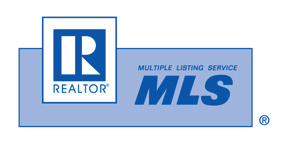
Selling your house for cash is becoming an increasingly popular option among homeowners who want to bypass the traditional real estate process. Whether you’re facing foreclosure, relocating quickly, or simply want to avoid paying agent commissions, a cash sale might seem like the perfect solution. But before making any decisions, it’s important to fully understand how this type of sale works, its potential benefits, and the possible pitfalls.
Unlike conventional sales, where buyers rely on mortgage lenders, a cash sale involves a buyer—often an investor or home-buying company—who can purchase your home outright, without the need for financing. This means fewer contingencies, faster closings, and less paperwork. However, it also usually means accepting a lower price for the convenience. Some homeowners find this trade-off worthwhile, especially if they’re under time constraints or dealing with properties that need extensive repairs.
It’s crucial to weigh all your options. If you’re unfamiliar with the home-selling process, you might want to review our Home Selling Guide to better understand what’s involved in traditional listings. In contrast, a cash sale skips much of the hassle but requires extra diligence to avoid scams or undervaluation.
Make sure you research reputable cash buyers. A good place to start is with platforms like Better Business Bureau to verify companies. Also, compare multiple offers, request proof of funds, and use a trusted real estate attorney or title company to protect yourself throughout the transaction.
This guide will walk you through how to sell your house for cash, explore the pros and cons, and help you decide if it’s the right choice for your situation.
How Cash Sales Work
Selling your house for cash is a straightforward process, but it differs significantly from the traditional real estate transaction. Understanding each step can help you navigate the sale confidently and avoid costly mistakes. The key difference in a cash sale is that the buyer does not need mortgage financing, which speeds up the timeline and simplifies the paperwork.
Typically, the process begins with a cash buyer—often an investor, individual buyer, or home-buying company—contacting you or responding to your listing. You’ll schedule a walkthrough, either virtual or in person, where the buyer assesses the property’s condition. Because most cash buyers purchase homes “as-is,” there’s usually no need for repairs or staging. This appeals to sellers with properties that may need updates or significant work.
After the walkthrough, the buyer presents a no-obligation cash offer. You should always take time to review it carefully and compare it with others. A reputable buyer will provide proof of funds to show they have the ability to purchase the home outright. At this point, you may want to consult a real estate attorney—check out our Real Estate Attorney Guide—to ensure the offer terms are fair and protect your interests.
If you accept the offer, the next steps move quickly. Title work is ordered, and the buyer may conduct an optional inspection. With no lender involved, there’s no waiting for loan approval or underwriting. Closings can occur in as little as 7 to 14 days, depending on local regulations and how quickly documentation is processed.
To learn more about how cash buyers operate and what to look out for, visit this helpful overview by Investopedia. A smooth cash sale requires preparation, but it can be one of the fastest and most efficient ways to sell a property.

Pros of Selling Your House for Cash
Selling your house for cash offers several powerful advantages, especially for homeowners who need speed, simplicity, and certainty. Here are the top benefits:
1. Faster Closing Times
Without the need for mortgage approvals, underwriting, or bank-mandated appraisals, cash sales can close in as little as 7–14 days. This is a major advantage compared to traditional sales, which often take 30–60 days or more.
2. Fewer Fees
By skipping the realtor, you can avoid paying agent commissions—typically 5–6% of the sale price. In addition, many cash buyers cover most or all of the closing costs. You also won’t have to invest in professional staging or costly repairs.
3. Sell “As-Is”
Cash buyers frequently purchase homes in their current condition, which is ideal if your property needs significant work or you simply don’t have time to renovate. This saves you time, money, and stress.
4. More Certainty & Less Risk
Cash sales remove the uncertainty of a buyer’s financing falling through at the last minute. With no lender involved, the chances of delays or canceled deals drop dramatically, giving you more confidence in your timeline.
5. Maximum Convenience
This approach is especially appealing for homeowners facing foreclosure, managing an estate, relocating quickly, or offloading rental properties with tenants in place. The process is typically faster, simpler, and more private.
Looking for more detailed comparisons? Check out our Cash Sale Comparison Guide.
Cons of Selling Your House for Cash
Selling your house for cash might sound like the fastest and easiest way to move on, but it’s not without its downsides. Before choosing this route, it’s important to understand the potential drawbacks that come with a cash transaction.
One of the biggest disadvantages is the likelihood of receiving lower offers. Cash buyers are typically investors looking for a deal, and they often expect significant discounts—sometimes 10% to 30% below market value. While you may save on fees and repairs, you could ultimately walk away with less money than if you listed your home traditionally. If you’re unsure what your home is worth, check out our guide on pricing your home accurately.
Another major concern is the potential for scams. Some buyers present themselves as legitimate investors but may pressure you into a rushed decision or request fees upfront. Always research any company or individual thoroughly, and consider using a real estate attorney to oversee the transaction. For tips on avoiding real estate scams, refer to the Federal Trade Commission’s guidelines.
Additionally, you may have limited room to negotiate. Many cash buyers present “as-is” offers with strict terms that benefit them more than the seller. You might find yourself with little leverage to adjust the sale price, timeline, or terms, which can be frustrating if you’re hoping for flexibility.
Lastly, selling for cash often means skipping the traditional listing process, which can significantly reduce market exposure. Without listing your home on the MLS or marketing it broadly, you could miss out on competitive offers or bidding wars that might raise the final sale price. For tips on maximizing exposure, visit our home marketing guide.
Who Should Consider Selling for Cash?
While selling your home for cash may not be the best choice for every homeowner, it can be a strategic solution for those facing specific circumstances. Understanding whether this route aligns with your needs starts with recognizing the unique benefits cash offers bring to the table—especially in time-sensitive or financially complex situations.
If you’re dealing with foreclosure, selling for cash can provide a quick exit strategy. Cash buyers can often close within days, helping you avoid damaging your credit further or going through a lengthy legal process. Similarly, homeowners going through a divorce may prefer a faster transaction to simplify asset division. For more on selling during challenging times, check out our article on how to sell a home during divorce.
Inherited properties are another common scenario where cash sales shine. If you’ve inherited a home that you don’t plan to live in—or can’t maintain—selling for cash helps bypass probate complexities and allows for a fast, clean handoff. Visit our guide to selling inherited property for more information on this topic.
Out-of-state homeowners and landlords dealing with vacant or tenant-damaged properties may also benefit from a cash sale. Instead of investing in repairs or traveling to oversee the process, they can offload the property with minimal hassle. Investors who own distressed properties and don’t wish to renovate might also prefer to sell as-is to a cash buyer.
Finally, retirees downsizing quickly or those relocating for a job may prioritize speed and convenience over maximum profit. In these cases, cash sales can offer peace of mind. For additional guidance on when to sell and how to time it right, visit this article by NerdWallet.
Tips for a Safe Cash Sale
While selling your house for cash can be a convenient and quick way to close a deal, it’s important to approach the process with caution to avoid potential pitfalls. Here are some essential tips to ensure a safe and secure cash sale for your home.
First, always verify the legitimacy of the buyer. If you’re working with a cash buyer or a company, make sure they have a solid track record. Research the company or individual online, check for reviews, and ensure they are licensed and accredited. A reputable buyer will have no problem providing references and credentials. For further reading on how to vet a buyer, refer to our guide on vetting home buyers.
Next, avoid rushing into a deal. While cash offers may seem attractive due to their speed, don’t accept the first offer that comes your way. Compare offers from different buyers to ensure you’re getting a fair price for your home. Make sure you understand the buyer’s terms and conditions, and don’t be afraid to ask for clarification. Zillow’s Seller Guide provides further insight into comparing offers effectively.
To ensure transparency, hire a real estate attorney or agent to review the contract. Even though you’re selling for cash, there are still legal documents that need to be processed. A professional will help protect your interests and avoid any unfavorable clauses. This step is particularly important if you’re unfamiliar with real estate contracts.
Finally, always meet in person with the buyer or their representative during the final steps of the transaction. Ensure the payment is legitimate, whether it’s a cashier’s check or wire transfer. Trust your instincts—if something doesn’t feel right, don’t hesitate to walk away from the deal. For more tips on navigating the selling process safely, read our Safe Selling Tips.



